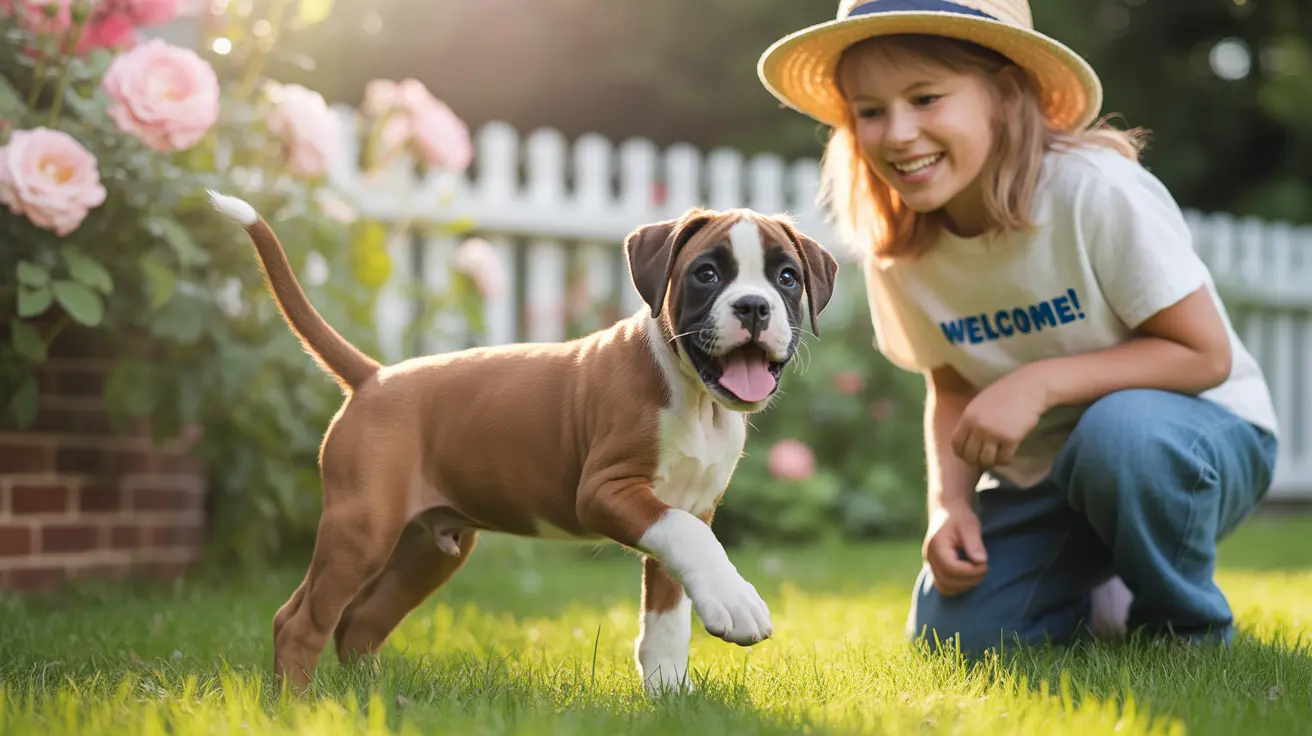If you've ever wondered why dogs pee when excited, you're not alone. This common behavior, known as excitement urination, affects many dogs, particularly puppies and young adults. Understanding the causes and solutions for this involuntary response can help both pet owners and their furry friends navigate this challenging situation more effectively.
While it may be frustrating to deal with unexpected puddles during greetings or playtime, it's important to recognize that this behavior isn't intentional misbehavior. Instead, it's often related to physiological development, emotional responses, and sometimes underlying anxiety or fear.
Understanding Excitement and Submissive Urination
Dogs may urinate when excited for several different reasons. Young puppies typically haven't developed full control over their bladder muscles, making it difficult to "hold it" during stimulating situations. This physical limitation, combined with emotional arousal, can lead to involuntary urination.
Submissive urination, while similar in appearance, stems from a different emotional place. Dogs use this behavior as a natural way to communicate that they're not a threat, particularly when feeling overwhelmed or intimidated. This can occur during greetings, when receiving attention, or in response to perceived threats.
Physical and Emotional Triggers
Physical Development
Puppies typically gain full bladder control between 4-6 months of age, though smaller breeds may take longer. During this developmental period, excitement urination is particularly common as their bodies are still learning to regulate these functions.
Emotional Responses
Intense emotions, whether positive or negative, can trigger urination in sensitive dogs. Common scenarios include:
- Greeting favorite people
- Meeting new visitors
- Playing exciting games
- Receiving attention or praise
- Experiencing sudden fear or anxiety
Prevention and Management Strategies
Immediate Solutions
Several practical steps can help manage excitement urination:
- Schedule frequent bathroom breaks
- Keep greetings calm and low-key
- Avoid direct eye contact during initial greetings
- Greet your dog outdoors when possible
- Create a consistent routine for arrivals and departures
Long-term Training Approaches
Building confidence and emotional control through positive reinforcement training can help reduce both excitement and submissive urination. Focus on:
- Rewarding calm behavior
- Teaching alternative greeting behaviors
- Building confidence through training exercises
- Gradually desensitizing to exciting situations
- Establishing consistent routines
When to Seek Professional Help
If excitement urination persists beyond 6-7 months of age or suddenly develops in an adult dog, consult a veterinarian to rule out medical causes. Additionally, working with a professional dog trainer or behaviorist may be beneficial if:
- The behavior is causing significant stress
- Traditional management methods aren't working
- The dog shows signs of anxiety or fear
- The problem is getting worse over time
Frequently Asked Questions
Why do dogs pee when they get excited or meet new people?
Dogs may pee during exciting encounters due to underdeveloped bladder control, emotional arousal, or submissive behavior. This is especially common in puppies and young dogs who haven't yet developed full physical control or emotional regulation.
How can I stop my dog from peeing out of excitement or fear during greetings?
Manage greetings by keeping them calm, avoiding direct eye contact, and greeting outdoors when possible. Establish consistent routines and reward calm behavior. For fearful dogs, work on building confidence through positive reinforcement training.
What are the main differences between excitement urination and submissive urination in dogs?
Excitement urination typically occurs during positive interactions and is accompanied by happy body language. Submissive urination happens when dogs feel intimidated or threatened and is often accompanied by submissive body language like lowered head or rolled-over posture.
Will my puppy outgrow peeing when excited, or do I need to do something to help them?
Most puppies naturally outgrow excitement urination as they develop better bladder control (usually by 4-6 months). However, consistent training and management strategies can help speed up this process and prevent the behavior from becoming habitual.
How can I help my dog feel less anxious and reduce submissive peeing when guests arrive?
Create a calm environment for arrivals, instruct guests on proper greeting protocols, and give your dog space to approach visitors on their own terms. Consider using positive reinforcement training to build confidence and establish alternative greeting behaviors.






